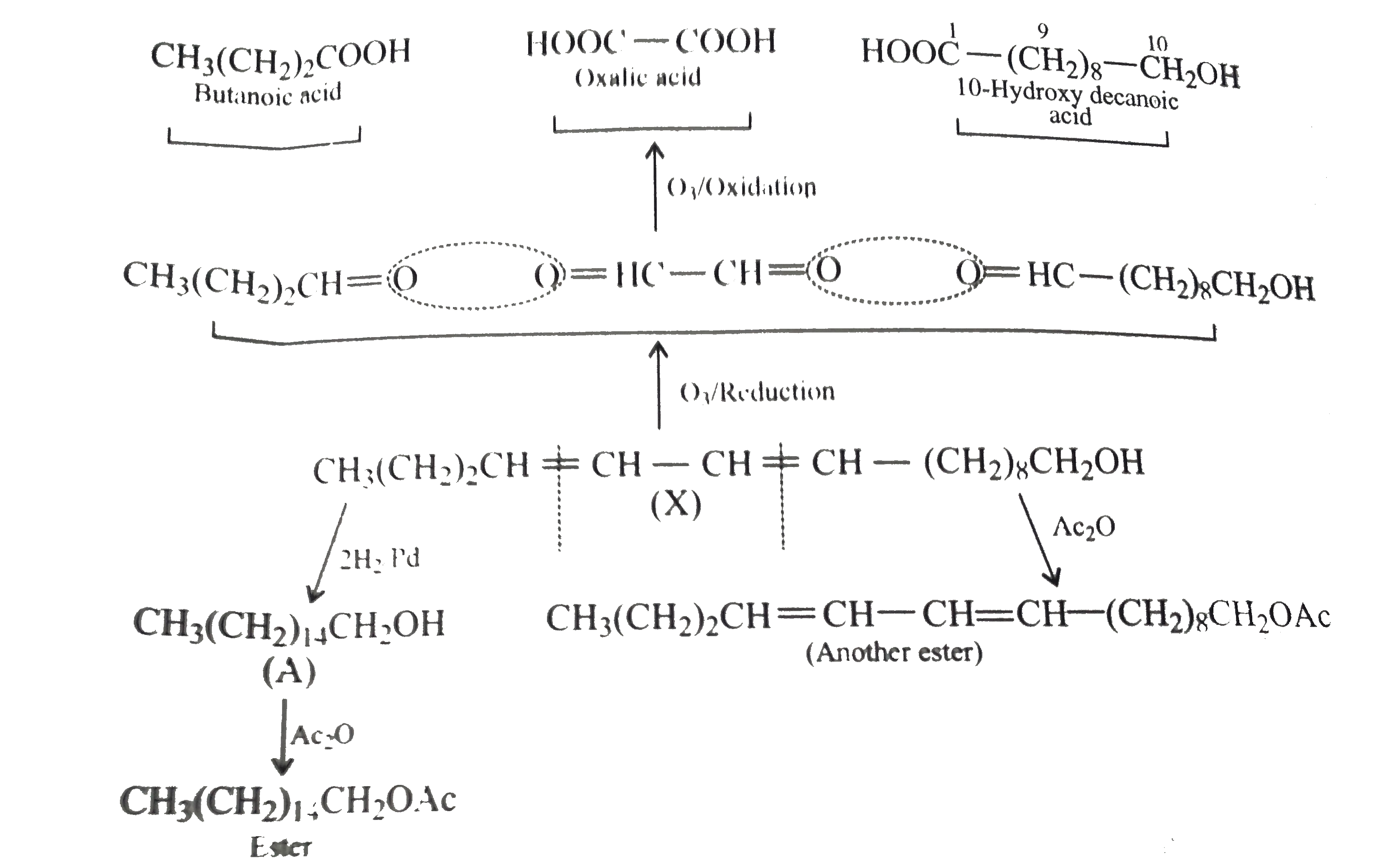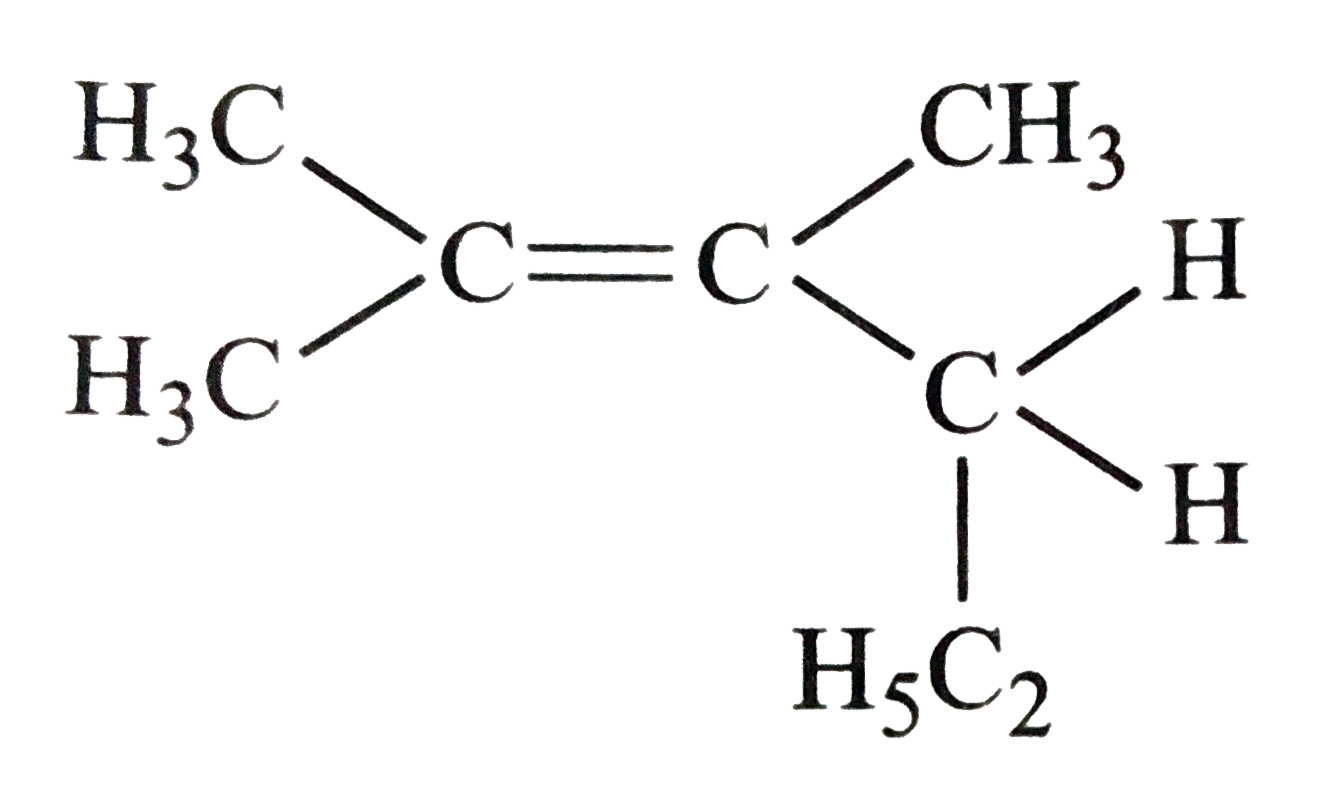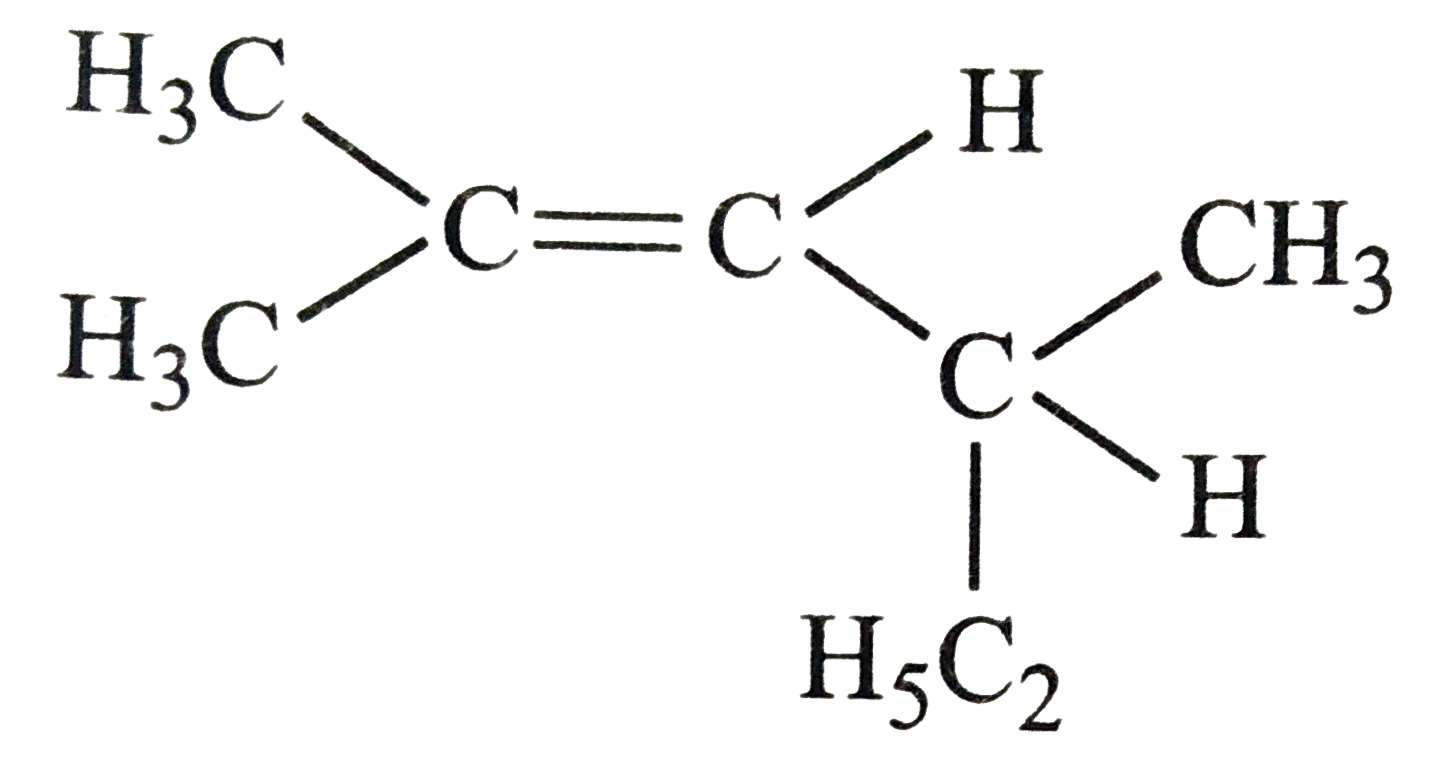A biologically active compound bombykol (C16H30O) is obtained from a natural source. The structure of the compound is determined by the following reactions :
(a) On hydrogenation, bombykol gives a compound (A),C16H34O, which reacts with acetic anhydride to give an ester.
(b) Bombykol also reacts with acetic anhydride to give another ester, which on oxidation ozonolysis (O3/H2O2) gives a mixture of butanoic acid, oxalic acid, and 10−hydr⊗y decanoic acid.
Determone the number of double bonds in bombykol. Write the strcutures of compounds (A) and bombykol. How many geometrical isomers are possible for bombykol ?
Text Solution
(i) D.U. In bombykol (X)(C16H30O)
=(2nC+2)−nH2=34−302=2∘
(ii) This suggests that (X) has either two (C=C) bonds or one (C≡C) bond.
(iii) Reaction of (X) with acetic anhydride to form an ester suggests that (X) contains (OH) group.
Proceed reverse from oxidative ozonolysis (O3/H2O2) products of ester of (X).
 .
.
(iv) Number of double bonds in (X)=2
(v) Number of geometrical isomers of (X)=22=4 isomers (since terminal groups are different).
|
Topper's Solved these Questions
- CARBOXYLIC ACIDS AND THEIR DERIVATIVESBOOK - CENGAGE CHEMISTRY ENGLISHCHAPTER - CARBOXYLIC ACIDS AND THEIR DERIVATIVESEXERCISE - Exercises Archives (True/False)
2 Videos
- BIOMOLECULESBOOK - CENGAGE CHEMISTRY ENGLISHCHAPTER - BIOMOLECULESEXERCISE - Exercises Archives (Analytical And Descriptive)
8 Videos
- CHEMICAL KINETICSBOOK - CENGAGE CHEMISTRY ENGLISHCHAPTER - CHEMICAL KINETICSEXERCISE - Archives Subjective
23 Videos
Similar Questions
Knowledge Check
An optically active compound having molecular formula C8H10 on ozonolysis gives acetone as one of the products. The structure of the compound is
A B
B C
C D
D
Compound C4H8CI2(A) on hydrolysis gives a compound C4H8O(B) which reacts with hydroxylamine and does not give any test with Tollens reagent . What are (A) and (B) ?
A1,1-Dichlorobutane and butanalB2,2-Dichlorobutane and butanalC1,1-Dichlorobutane and butan-2-oneD2,2-Dichlorobutane and butan-2-oneThe compound C4H10O4 reacts with acetic anhydride to give a derivative with the formula C12H18O8. How many (OH) groups are present in the original substance
A2B3C7D4
The oxidation of an alcohol (C5H12O) with acid dichromate gives a mixture of dimethyl ketone and acetic acid. The alcohol is
View SolutionWhich one of the following compound gives aspirin on reacting with acetic anhydride in presence of H2SO4
View SolutionA compound A with formula C4H10O3 on acylation with acetic anhydride gives another compound with molecular mass 190. The number of hydroxyl groups in the compound A are
View SolutionThe compound X(C3H6O) on oxidation gives a compound Y(C3H6O2) . The compound Y is
View SolutionC7H10O reacts with CH3MgBr r to give a compound C8H10O which gives the test with iodoform, than fine out structure of A
View Solution
